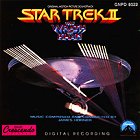 Atlantic Records releases an album of selections from James Horner‘s soundtrack to Star Trek II: The Wrath Of Khan. (The same album will receive a CD re-release from GNP Crescendo Records at a later date.)
Atlantic Records releases an album of selections from James Horner‘s soundtrack to Star Trek II: The Wrath Of Khan. (The same album will receive a CD re-release from GNP Crescendo Records at a later date.) ![]()

 Atlantic Records releases an album of selections from James Horner‘s soundtrack to Star Trek II: The Wrath Of Khan. (The same album will receive a CD re-release from GNP Crescendo Records at a later date.)
Atlantic Records releases an album of selections from James Horner‘s soundtrack to Star Trek II: The Wrath Of Khan. (The same album will receive a CD re-release from GNP Crescendo Records at a later date.) ![]()
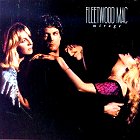 Warner Bros. Records releases the 13th Fleetwood Mac album, Mirage, the band’s first studio recording since 1979. With the hits “Hold Me”, “Gypsy”, “Can’t Go Back” and “Love In Store”, the album climbs the charts quickly, but the band quickly disperses to solo careers again, not recording any further new material until 1987’s Tango In The Night.
Warner Bros. Records releases the 13th Fleetwood Mac album, Mirage, the band’s first studio recording since 1979. With the hits “Hold Me”, “Gypsy”, “Can’t Go Back” and “Love In Store”, the album climbs the charts quickly, but the band quickly disperses to solo careers again, not recording any further new material until 1987’s Tango In The Night. ![]()
 Walt Disney Records releases Wendy Carlos’ soundtrack from the movie Tron. Two Journey songs also appear on the album.
Walt Disney Records releases Wendy Carlos’ soundtrack from the movie Tron. Two Journey songs also appear on the album. ![]()
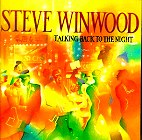 Island Records releases the second solo album by Steve Winwood, Talking Back To The Night, featuring the singles “Still In The Game” and “Valerie”.
Island Records releases the second solo album by Steve Winwood, Talking Back To The Night, featuring the singles “Still In The Game” and “Valerie”. ![]()
 IRS Records releases the second Wall Of Voodoo album, Call Of The West, featuring the single “Mexican Radio”.
IRS Records releases the second Wall Of Voodoo album, Call Of The West, featuring the single “Mexican Radio”. ![]()
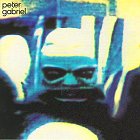 Geffen Records releases the fourth self-titled Peter Gabriel album, though it’s given a subtitle of Security to avoid confusion with Gabriel’s three previous self-titled albums. The album includes the hit single “Shock The Monkey”.
Geffen Records releases the fourth self-titled Peter Gabriel album, though it’s given a subtitle of Security to avoid confusion with Gabriel’s three previous self-titled albums. The album includes the hit single “Shock The Monkey”. ![]()
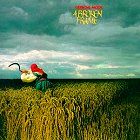 Mute Records releases the second album by Depeche Mode, A Broken Frame, featuring the singles “See You” and “The Meaning Of Love”.
Mute Records releases the second album by Depeche Mode, A Broken Frame, featuring the singles “See You” and “The Meaning Of Love”. ![]()
 Warner Bros. Records releases the first solo album by Donald Fagen, The Nightfly, featuring the singles “I.G.Y.” and “New Frontier”.
Warner Bros. Records releases the first solo album by Donald Fagen, The Nightfly, featuring the singles “I.G.Y.” and “New Frontier”. ![]()
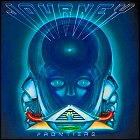 Columbia Records releases the Journey album Frontiers, featuring the singles “Separate Ways (Worlds Apart)”, “Send Her My Love” and “Faithfully”.
Columbia Records releases the Journey album Frontiers, featuring the singles “Separate Ways (Worlds Apart)”, “Send Her My Love” and “Faithfully”. ![]()
 For the first time, Compact Disc players and pre-recorded CDs appear in the English-speaking world (having been available in Japan since late 1982. The first label to embrace the new digital format is CBS Records, which publishes 16 existing titles on CD ranging from classical to rock. The technology has been developed jointly by Philips and Sony since the 1970s.
For the first time, Compact Disc players and pre-recorded CDs appear in the English-speaking world (having been available in Japan since late 1982. The first label to embrace the new digital format is CBS Records, which publishes 16 existing titles on CD ranging from classical to rock. The technology has been developed jointly by Philips and Sony since the 1970s.
 Electric Light Orchestra bassist and vocalist Kelly Groucutt goes solo, releasing an album of distinctly ELO-esque tunes on the Polygram label. Virtually all of Groucutt’s bandmates appear on his first album, with the notable exception of ELO frontman Jeff Lynne.
Electric Light Orchestra bassist and vocalist Kelly Groucutt goes solo, releasing an album of distinctly ELO-esque tunes on the Polygram label. Virtually all of Groucutt’s bandmates appear on his first album, with the notable exception of ELO frontman Jeff Lynne. ![]()
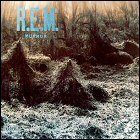 I.R.S. Records releases R.E.M.‘s debut album Murmur, featuring the single “Radio Free Europe”.
I.R.S. Records releases R.E.M.‘s debut album Murmur, featuring the single “Radio Free Europe”. ![]()
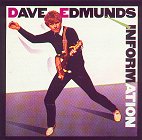 CBS Records releases the Dave Edmunds solo album Information, featuring the singles “Slipping Away” and “Information” (both produced by Jeff Lynne of ELO fame).
CBS Records releases the Dave Edmunds solo album Information, featuring the singles “Slipping Away” and “Information” (both produced by Jeff Lynne of ELO fame). ![]()
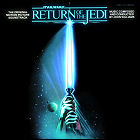 RSO Records releases an LP of selections from John Williams’ soundtrack from Return Of The Jedi, a surprisingly downscaled released compared to the first two movies’ double-album soundtracks.
RSO Records releases an LP of selections from John Williams’ soundtrack from Return Of The Jedi, a surprisingly downscaled released compared to the first two movies’ double-album soundtracks.
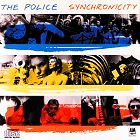 A&M Records releases the fifth and final Police album Synchronicity, featuring the singles “Synchronicity I”, “Synchronicity II”, “Every Breath You Take”, “King Of Pain” and “Wrapped Around Your Finger”.
A&M Records releases the fifth and final Police album Synchronicity, featuring the singles “Synchronicity I”, “Synchronicity II”, “Every Breath You Take”, “King Of Pain” and “Wrapped Around Your Finger”. ![]()
 Electric Light Orchestra‘s ninth album, the science fiction/time travel concept album Secret Messages, is released, featuring the single “Rock ‘n’ Roll Is King”. Originally a double album (slated to include the legendary lost song “Beatles Forever”), Secret Messages is pared down to a single LP late in production, and the resulting orphaned tracks become the source of most of the group’s unreleased songs for several box sets to come.
Electric Light Orchestra‘s ninth album, the science fiction/time travel concept album Secret Messages, is released, featuring the single “Rock ‘n’ Roll Is King”. Originally a double album (slated to include the legendary lost song “Beatles Forever”), Secret Messages is pared down to a single LP late in production, and the resulting orphaned tracks become the source of most of the group’s unreleased songs for several box sets to come. ![]()
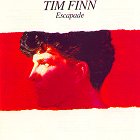 Recording solo material with elements of funk, R&B and reggae that he deemed unsuitable for the band that made him famous, Split Enz, Tim Finn releases his first solo album, Escapade. Slightly more in line with mainstream musical tastes than Split Enz’s usual quirky output, Escapade quickly makes the top ten – and goes platinum – in Australia, where it is first released.
Recording solo material with elements of funk, R&B and reggae that he deemed unsuitable for the band that made him famous, Split Enz, Tim Finn releases his first solo album, Escapade. Slightly more in line with mainstream musical tastes than Split Enz’s usual quirky output, Escapade quickly makes the top ten – and goes platinum – in Australia, where it is first released. ![]()
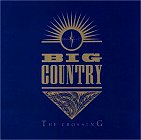 POlygram Records releases the Big Country album The Crossing, featuring the singles “In A Big Country” and “Fields of Fire”.
POlygram Records releases the Big Country album The Crossing, featuring the singles “In A Big Country” and “Fields of Fire”. ![]()
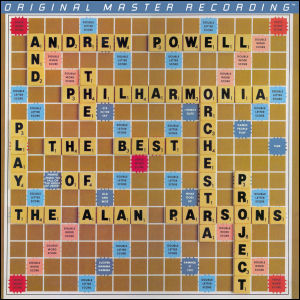 Mobile Fidelity Sound Lab releases Andrew Powell’s elaborately-titled cover album Andrew Powell and the Philharmonia Orchestra Play the Best of the Alan Parsons Project, featuring new orchestral arrangements of the Project’s back catalog devised by Powell (who also arranges the orchestral components of the Project’s recordings).
Mobile Fidelity Sound Lab releases Andrew Powell’s elaborately-titled cover album Andrew Powell and the Philharmonia Orchestra Play the Best of the Alan Parsons Project, featuring new orchestral arrangements of the Project’s back catalog devised by Powell (who also arranges the orchestral components of the Project’s recordings). ![]()
 RCA releases the Hall & Oates compilation album Greatest Hits: Rock & Soul, Part I, featuring the singles “Say It Isn’t So” and “Adult Education”.
RCA releases the Hall & Oates compilation album Greatest Hits: Rock & Soul, Part I, featuring the singles “Say It Isn’t So” and “Adult Education”. ![]()
 The eighth album from Split Enz, Conflicting Emotions, is released. Despite the catchy single “Strait Old Line”, the album doesn’t sell as well is the group’s previous three albums (perhaps a side-effect of lower exposure due to the previous album’s lead single being artificially strangled by radio programmers). This is the last album to feature founding member Tim Finn; his younger brother Neil elects to keep the band together to continue recording.
The eighth album from Split Enz, Conflicting Emotions, is released. Despite the catchy single “Strait Old Line”, the album doesn’t sell as well is the group’s previous three albums (perhaps a side-effect of lower exposure due to the previous album’s lead single being artificially strangled by radio programmers). This is the last album to feature founding member Tim Finn; his younger brother Neil elects to keep the band together to continue recording. ![]()
 The Alan Parsons Project releases its seventh album, Ammonia Avenue, including the singles “Prime Time” and “Don’t Answer Me”.
The Alan Parsons Project releases its seventh album, Ammonia Avenue, including the singles “Prime Time” and “Don’t Answer Me”. ![]()
 Scotti Bros. Records releases “Weird Al” Yankovic‘s second album, In 3-D, featuring the singles “Eat It” and “I Lost On Jeopardy”.
Scotti Bros. Records releases “Weird Al” Yankovic‘s second album, In 3-D, featuring the singles “Eat It” and “I Lost On Jeopardy”. ![]()
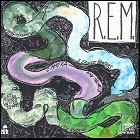 I.R.S. Records releases R.E.M.‘s second album, Reckoning.
I.R.S. Records releases R.E.M.‘s second album, Reckoning. ![]()
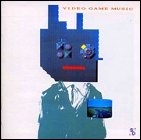 Scitron Digital releases the album Namco Video Game Music, collecting recordings of music and sounds from the company’s classic arcade games.
Scitron Digital releases the album Namco Video Game Music, collecting recordings of music and sounds from the company’s classic arcade games. ![]()
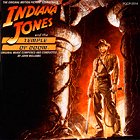 Polydor Records releases an album of John Williams‘ soundtrack from Indiana Jones And The Temple Of Doom, including the movie’s unique rendition of Cole Porter’s “Anything Goes”.
Polydor Records releases an album of John Williams‘ soundtrack from Indiana Jones And The Temple Of Doom, including the movie’s unique rendition of Cole Porter’s “Anything Goes”. ![]()
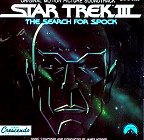 Atlantic Records releases James Horner‘s soundtrack from Star Trek III: The Search For Spock, including an instrumental “pop version” of the movie’s main theme. (The same album will be given a compact disc release at a later date by GNP Crescendo Records.)
Atlantic Records releases James Horner‘s soundtrack from Star Trek III: The Search For Spock, including an instrumental “pop version” of the movie’s main theme. (The same album will be given a compact disc release at a later date by GNP Crescendo Records.) ![]()
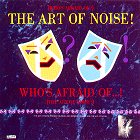 Having already made a unique sample-based production sound evident on such albums as Yes’ 90125, Art Of Noise releases its first album, (Who’s Afraid Of?) The Art Of Noise, on ZTT Records. The single “Close (To The Edit)”, accompanied by a manic, surreal music video, becomes an immediate hit. At this time, the “band” consists of Anne Dudley, Trevor Horn, J.J. Jeczalik and Gary Langan.
Having already made a unique sample-based production sound evident on such albums as Yes’ 90125, Art Of Noise releases its first album, (Who’s Afraid Of?) The Art Of Noise, on ZTT Records. The single “Close (To The Edit)”, accompanied by a manic, surreal music video, becomes an immediate hit. At this time, the “band” consists of Anne Dudley, Trevor Horn, J.J. Jeczalik and Gary Langan. ![]()
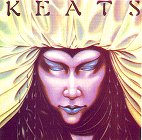 EMI Records releases the self-titled album Keats, written and performed by members of the Alan Parsons Project; Parsons produces.
EMI Records releases the self-titled album Keats, written and performed by members of the Alan Parsons Project; Parsons produces. ![]()
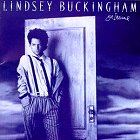 Warner Bros. Records releases Lindsey Buckingham‘s second solo album, Go Insane, featuring the single of the same name.
Warner Bros. Records releases Lindsey Buckingham‘s second solo album, Go Insane, featuring the single of the same name. ![]()